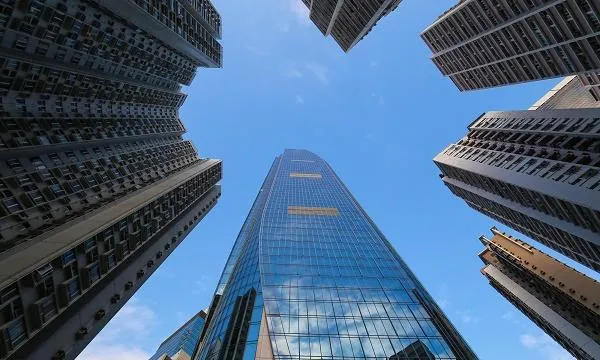
Demand from Chinese firms not enough to offset Hong Kong’s new office supply pipeline
Rates of rental and price declines have started to slow in Q1.
Despite the fact that Hong Kong has made healthy progress in containing the virus, Savills says the economic fallout has been inescapable (2020 GDP: -6.1%). In the office market, vacancy is now approaching 9% (5.5 million sq ft) while the retail and hospitality sectors have been hit hardest with shop rents and average daily room rates down by 23% and 57% respectively over 2020 as a whole.
As China has reported record GDP growth in the first quarter of 18.3%, however, supported by consumer spending, production and investment, Hong Kong is a likely beneficiary.
Here’s more from Savills:
The future prospects of the economy and therefore the real estate market will largely depend on the opening of borders along with reduced quarantine requirements and more relaxed social distancing. This will in turn depend on the success of vaccination programs and continuing social compliance. Early indications are, however, that many Hongkongers are reluctant to get vaccinated and rates have been low (currently only 8% of Hong Kong’s 7.5 million residents) and this could potentially slow any recovery.
Other threats to recovery or to the shape of the recovery, include changes in behaviour driven by technology. The rate of adoption of work from home, the shift to online shopping for goods and services, the future of shared work and living space are all examples of major changes (discernible even before COVID) whose impact on traditional real estate asset classes is still open to debate. Substantial amounts of unallocated capital continue to look for a home, however, and competition for well-priced assets can be expected to gain momentum over the coming quarters.
Already, however, the first quarter is showing some early signs of a turnaround as rates of rental and price declines slow and volumes begin to pick up. In the office market, a strong IPO pipeline and demand from PRC firms will spur demand, but probably not enough to offset a substantial new supply pipeline in 2022 and 2023. The retail market has been dominated by F&B deals and temporary concepts, but traditional retailers are beginning to make enquiries and it is hard to see much further downside for rents.
Hoteliers are focused on quarantining travellers and staycationers and will have to wait for Mainland border restrictions to ease before the sector can truly bounce back. The industrial sector has lost little of its allure during the pandemic and remains the standout asset class regionally, while the residential market has shown remarkable resilience supported by limited supply, low mortgage rates and plenty of liquidity.



















 Advertise
Advertise





